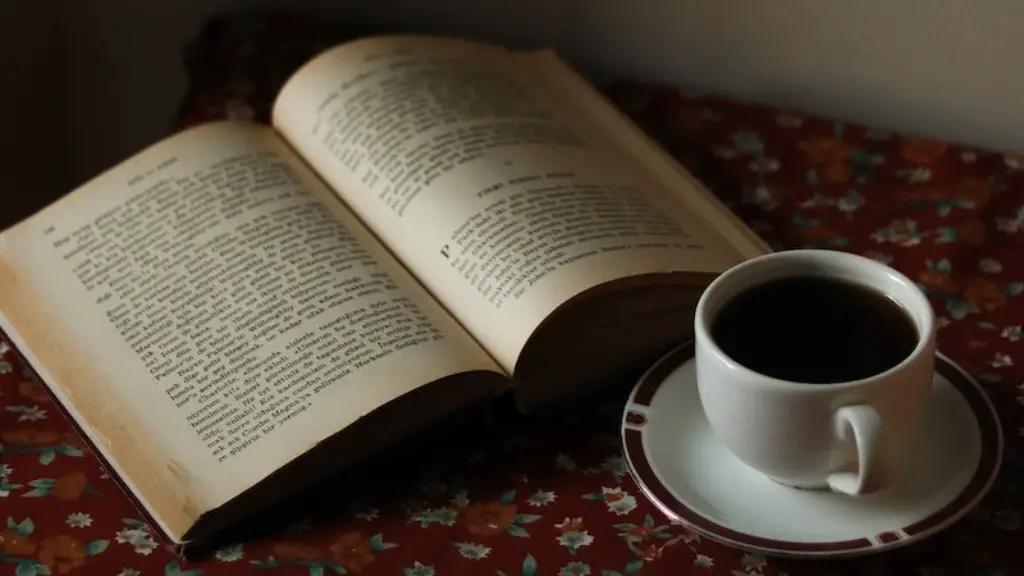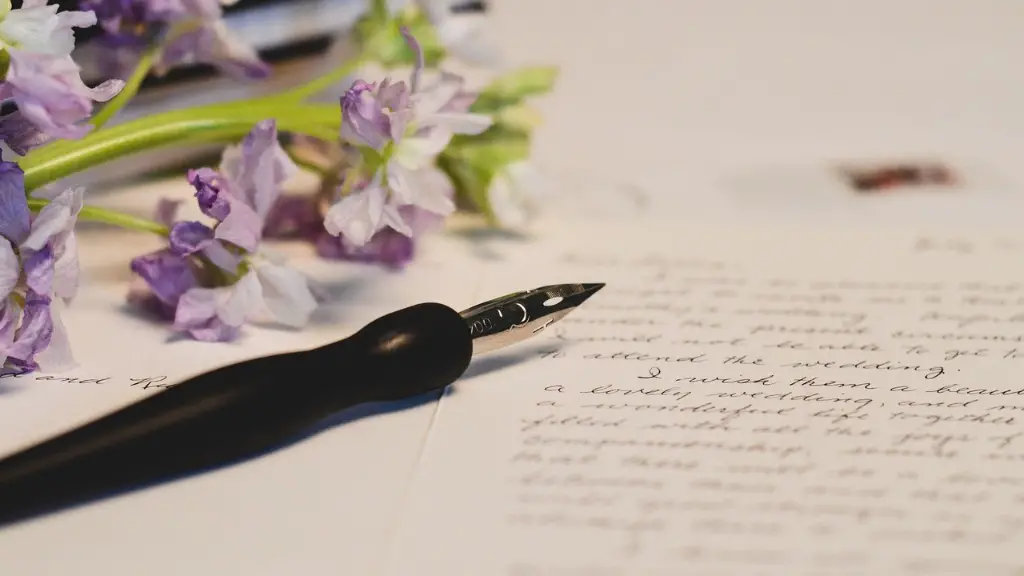The Historical Context Behind Langston Hughes’ “I Too”
In 1925, Langston Hughes wrote the poem “I Too”, which depicts his experience of racism and social marginalization in America during the early 20th century. His poem drew on the long history of slavery, racism, segregation and economic inequality that black Americans faced at this time.
Born in 1902, Langston Hughes was witness to the struggles and successes of black Americans throughout the long-term struggle for civil rights. In the decades prior to Hughes’ writing, the injustices of Jim Crow segregation and disenfranchisement had become increasingly apparent to African Americans. The “Red Summer” of 1919, an outbreak of racial violence against black Americans, also contributed to Hughes’ growing understanding of the marginalization of black Americans.
According to African American Studies Professor Robert B. Fairbanks, Jr, Langston Hughes “identif[ied] with the pathos of the African-American experience” throughout his writing and poetry. Fairbanks suggests that Hughes used poetry as “a platform for critiquing the inequality of existing social and political norms.”
What Message Does “I Too” Communicate?
“I Too” is a poem which communicates Hughes’ sense of alienation and anger in response to the racism and oppression of African Americans during the 1920s. According to literary scholar Bruce Cope, the poem serves as a “testament to black pride” and “celebrates a collective false consciousness” – the belief that, in spite of their marginalization, African Americans are “still standing strong.”
At the poem’s core lies a powerful metaphor that expresses the inescapable nature of racism and oppression. The poem climaxes with the lines, “I, too, am America” – a clear assertion that, in spite of being psychologically and economically disadvantaged, African Americans are still a part of a greater American identity.
Additionally, literary scholar Karla Armbruster suggests that Hughes’ use of language in “I Too” conveys a sense of hope “in the midst of repressed identity.” The poem’s language helps to create a feeling of exhortation to join a “universal chorus of American voices.”
The Impact “I Too” Has Had on the Civil Rights Movement
Given that “I Too” speaks to the daily experience of black Americans during the 1920s, it is understandable why the poem has so often been used as a source of inspiration and motivation during the 20th century civil rights movement.
According to Mary Lou Finley, a professor at the University of Alabama, Hughes and his poetry were highly regarded among civil rights leaders of the 1950s and 1960s, who used his work “to inspire and capture the growing spirit of protest about inequality and social injustice.”
Moreover, according to civil rights lawyer J.D. Porter, Hughes’ “I Too” helped to provide a voice to the often-neglected stories of the everyday struggles of African Americans throughout the 20th century. In this regard, Hughes’ poem has proved to be an enduring symbol of resilience and hope that has endured to the present day.
The Continued Significance of “I Too” in the 21st Century
Nearly a century on from its publication, “I Too” still retains significant relevance in contemporary discussions of racism and inequality in the United States. According to professor of creative writing for The University of North Carolina, Claudia Rankine, Hughes’ poem serves as “a powerful reminder of…the endurance of the African American spirit in the face of the downward cultural force of racism” and “the hope for [equal] respect and recognition” that can only be achieved through the collective action of Americans of all backgrounds.
In this way, “I Too” serves as a powerful reminder of the need for lasting change in the way black Americans are viewed and treated in the United States. To this day, the poem continues to be used in rallying cries of protest and resistance, drawing inspiration from the timeless words of Langston Hughes.
The Legacy of Langston Hughes in the 21st Century
The legacy of Langston Hughes’ “I Too” is inextricably tied to Hughes’ larger body of work, which has served as a platform for African Americans to express their concerns and grievances throughout the 20th and 21st centuries.
For instance, according to English professor Jeffrey Woods, Hughes’ spoken-word poetry was highly embraced among the Harlem Renaissance writers of the 1920s and 1930s due to its “distinctive cadence, rhythm, and intensity.” Moreover, Hughes’ works have often been the first point of contact for young African American writers navigating their own experience of racism and oppression.
In this way, Langston Hughes’ poetry and writings have served as a wellspring of inspiration for many black writers and poets of the 20th and 21st centuries. As such, his work stands as a testament to the power of the human spirit in the face of racism and prejudice.
The Cultural Relevance of Hughes’ Poetry Today
Langston Hughes’ “I Too” and other works of poetry and prose remain widely read and interpreted to this day, with recent performances of his works being included in the repertories of artists and performers of the 21st century.
For instance, University of California professor Lauren Johnson and scholar Priyamvada Gopal have highlighted the work of many contemporary African American and hip hop performers in their interpretations of Langston Hughes’ works. According to Johnson and Gopal, “musical and visual interpretations of Langston Hughes’ poetry…underscore the fact that his poetry still has much to teach us about race and justice in the present day.”
In this way, Hughes’ poetry and writings continue to be enjoyed and studied for their insights into contemporary conversations of racism, identity, and justice.
Why Hughes’ “I Too” Remains Relevant 100 Years After Its Publication
The fact that Langston Hughes’ “I Too” is still widely read and discussed 100 years after its publication speaks to its enduring relevance and impact in the 21st century. The poem is seen by many as a symbolic representation of African American resilience in the face of continued racism and discrimination.
The poem’s lasting resonance is also attributed to its simple yet powerful metaphor of the African American struggle in the United States. By claiming to be “American” despite their marginalization, Hughes championed the hopeful message that all Americans, regardless of background, can come together to form a greater, unified identity.
The Continued Struggle For Equality in the Era of Mass Incarcerment
Though “I Too” speaks to a distinct period in American history, the poem’s message of resilience in the face of oppression continues to resonate with African Americans in the 21st century.
According to African American Studies professor Blake Harper, the institutional racism and income inequality faced by black Americans in the era of mass incarceration has had an especially damaging effect on generation after generation of African Americans.
Though the American system of justice has been expanding rights for African Americans since Brown v. Board of Education, Harper suggests that this progress has been hampered by a wide range of policies – such as the “tough on crime” approach of the 1980s and the post-9/11 Patriot Act – which have served to entrench a cycle of racialized inequality and suffering in the United States.
The Need for Radical Change in the Face of Inequality
In order for the words of “I Too” to fully come to pass, deep and lasting social change is needed. African Americans must be provided with full protection under the law, community support, and economic opportunity.
According to Professor Kutil, there needs to be an “overhaul of the criminal justice system,” which would create an environment in which African Americans “feel supported and safe.” He also urges for the implementation of “policies that make it easier for African Americans to access healthcare, jobs, and quality education.”
In addition to economic reform, Professor Kutil stresses that there needs to be a greater focus on “shifting cultural attitudes towards African Americans” in order to combat the racism and inequality they continue to face. He suggests that dialogues between African Americans and non-African Americans need to be held in order to foster an understanding the shared experiences of black Americans “in the face of oppression.”
A Legacy of Resilience and Hope
Langston Hughes’ “I Too” stands as a powerful reminder of the long fight for justice experienced by African American throughout the 20th and 21st centuries. The poem has provided solace and strength to many as they face ongoing struggles for civil rights and equality.
Though Hughes’ poem has endured decades of racism and prejudice, its message of resilience and hope remain as true today as it was in the 1920s. As long as the words of Langston Hughes’ “I Too” live on, so too will the spirit of protest and justice experienced by African Americans in the United States.


